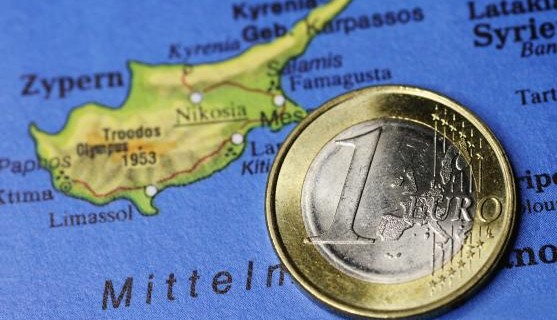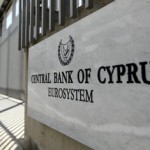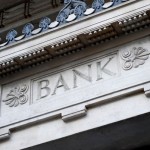The Rise and Fall of the Cypriot Economy (Part 1)

Part 1 – Blue Skies, Growth & Wealth Development
 The Cypriot economy has had its fair share of ups and downs over the past 60 years since the island gained independence from the United Kingdom. The purpose of this two part article is to provide an alternative view from the mainstream media on the dynamics at play in Cyprus over these past 60 years and lay out a hypothesis as to what ultimately took place over half a century which led to the rise and demise of the Cypriot economy.
The Cypriot economy has had its fair share of ups and downs over the past 60 years since the island gained independence from the United Kingdom. The purpose of this two part article is to provide an alternative view from the mainstream media on the dynamics at play in Cyprus over these past 60 years and lay out a hypothesis as to what ultimately took place over half a century which led to the rise and demise of the Cypriot economy.
The author does not seek to assign blame, suggest corrective action, economic policy or anything else. Politically driven media, parties and special interest groups ultimately aim to drive their own interests and agenda and sometimes seek to blur reality intentionally. The author belongs to none of those groups.
Democratic states succeed or fail as result of their policies, institutions, unwritten laws and long held customs usually established by the leaders and followed by the people throughout the ages, sometimes unwillingly but mostly willingly as a result of their exercising their right to vote.
Positive changes on the above take time, sometimes generations and there is usually a time lag from the moment change is initiated until it is fully embedded into the fabric of society. History has taught us that some problems have no solutions and sometimes when we solve a problem we also create another one somewhere else. One can only hope that the new problem created is less damaging than the one solved.
There are also unintended consequences to change and nothing is ever really black or white unless you are a politician and then you are a seer and a sage. Of course if you are a politician there is no problem so great that cannot be blamed on your political opponents but that discussion is beyond the scope of this article.
The facts are undoubtedly the facts; all sorts of people have all sorts of theories about what caused the great economic fallout in Cyprus. What you are about to read is another one. It is broken in five stages and describes the full cycle that the Cypriot economy has been through over the last 60 years.
Stage 1
In the 1960’s when Cyprus got its independence from the United Kingdom the majority of the population had very low incomes and essentially subsistence lifestyles. People at the time primarily lived in rural areas and were mostly involved in agricultural and farming activities. They typically did not waste money, saved as much as they could and had very little debt in general as nobody really wanted to lend to them. At this stage the economy was undeveloped and people were in their vast majority poor and they knew it.
As the first decade of independence went on the economy developed somewhat and people gradually accumulated more money but continued to save because of inherent fear of not having enough in the future and also to provide a better future for their families. During this phase the people of Cyprus built up some expertise, abilities in some of the non-traditional occupations such as accountancy, law and other white collar professions. The population gradually became urbanised. Cyprus at this stage was an early-stage emerging economy.
Soon after, the Turkish invasion in 1974 dislocated the economy and shocked the whole system and the island’s infrastructure. The invasion while tragic ushered in a period of unprecedented growth for the Cypriot economy and its people in the immediate years that followed.
Money poured into the economy from different sources to rebuild the economy, house the refugees and to redevelop its tourism industry after the loss of some of the most beautiful parts of the island and tourist hotspots. The banks played a very important role in supporting this growth by extending credit and providing looser financing in order to help reignite development in every respect.
Stage 2
The late 70’s and 80’s in Cyprus are characterised by strong growth where people still saved but also started to make investments primarily in land and real estate, apartments, holiday homes etc. Some even bought property in London. The people that were in the driver’s seat or the producers at this stage were pretty much the same ones that grew up with financial insecurity and they still carried their financial cautiousness. They: worked hard, saved as much as they could and entrepreneurs invested efficiently in their means of production and sought to develop business and exports with the wider Middle Eastern region and Great Britain. At this stage the working population is predominantly made up of producers.
This was a very healthy period for the Cypriot economy where income growth was rapid and very much in line with the economic productivity of the nation. Unemployment was virtually non-existent and inflation while somewhat high did not impede economic growth. The people of the island were getting richer quickly but still thought of themselves as poor. Cyprus transitioned into a later-stage emerging economy during this period.
During this phase as the banking industry matured, credit growth expanded and slowly started to creep up to reach income growth which it eventually overtook. As people had surplus capital some mal-investment in the economy started to become noticeable but was ignored as all was still well.
Stage 3
In the third stage, in the 1990’s to the Cypriot economy became richer relative to where it was in the 70’s and people started to think of themselves as rich. Per capita income during this phase was rising and approached some of the wealthier developing economies. The general economic environment was very much at peak productivity, full employment. Meanwhile the prevailing psychology of the land changed from one of thriftiness and hard work to taking a more relaxed view on work and life and a stronger effort to enjoy the fruits of life.
Furthermore each government that was elected made little real effort to modernise the civil service, health care or the other state institutions. Institutions remained largely unchanged and systems operated very much in the way they were inherited by the British in 1960. Institutions became extractive in the sense that they extracted value from the economy and society as a whole, as opposed to adding value. A small group of individuals did their best to exploit the weaknesses in the whole system for their own benefit and had vested interest in protecting the status quo. The public sector also started to grow at a much faster pace during this period.
The work force, now predominantly the generation brought up in the 70’s and 80’s, shifted priorities from working hard, competing on a business/productivity level and building wealth to avoiding the first two and seeking ways to build as much wealth, as fast as possible with the least effort possible.
Professional success at this stage equated to securing a job for life. Roles in the civil service, semi-governmental organizations and local banks which are as a rule offered in exchange for backing political parties and ensuring votes during elections become much sought after. The men in black also play their part in the exchange of jobs for political and economic influence. At this stage the producers slowly start to decline and the moochers start to increase gradually. Young well educated people returning from their studies abroad traded their education and intellect for the secure, low demanding/productivity jobs in the public sector only to end up wasting away and turning into well remunerated serfs.
During this stage everything rolls on fine, business people, politicians and the priesthood develop their clout over the people, they develop their influencing skills to the tee which come in handy as they seek to project and protect their individual interests. Cyprus at this stage was an early stage developing economy.
Part 2: The Rise and Fall of the Cypriot Economy
Find more: Contributing Authors





























